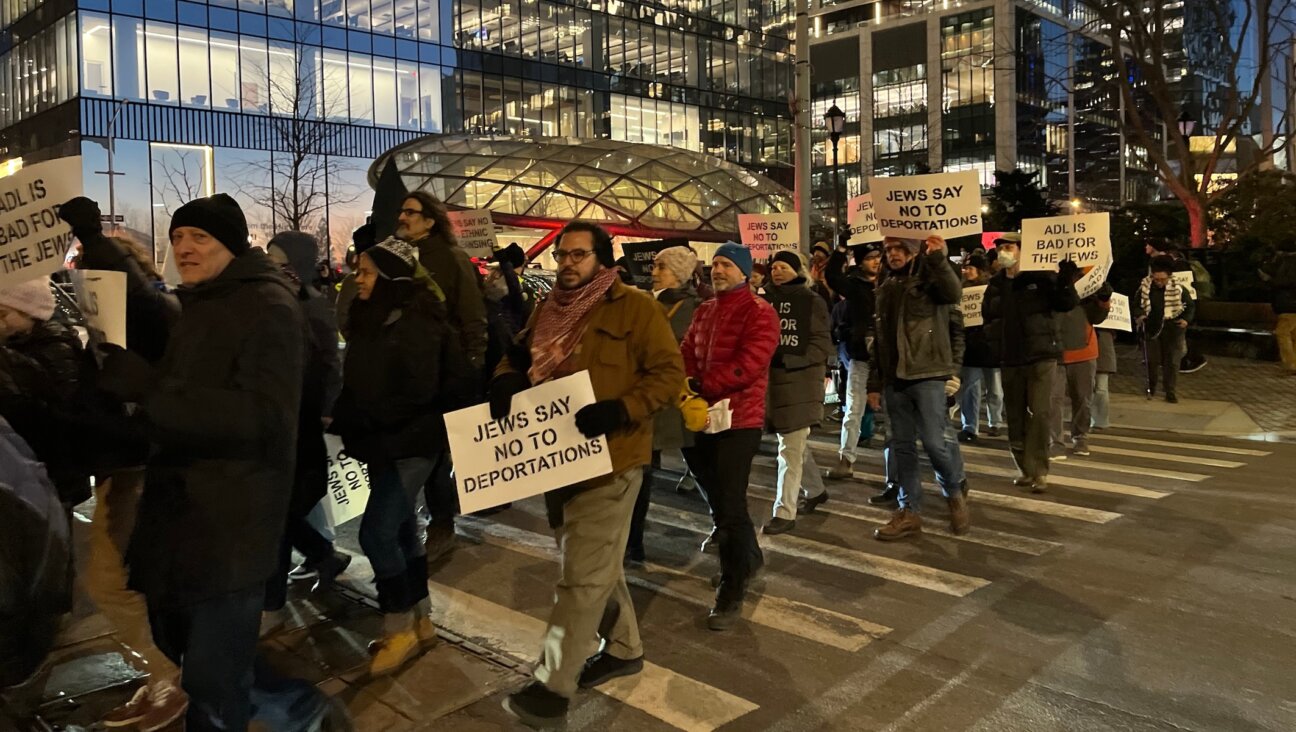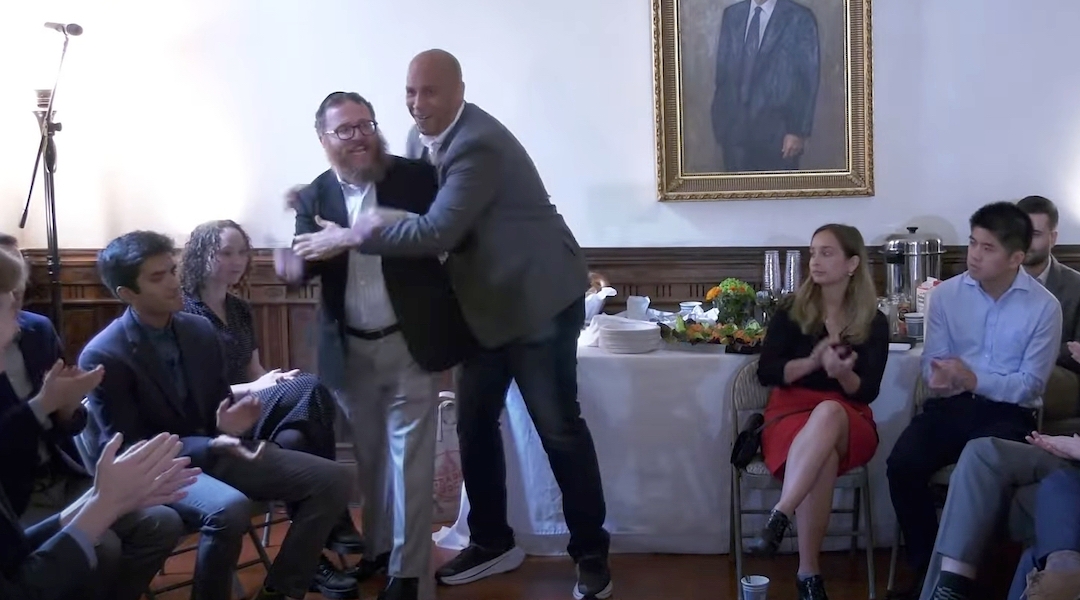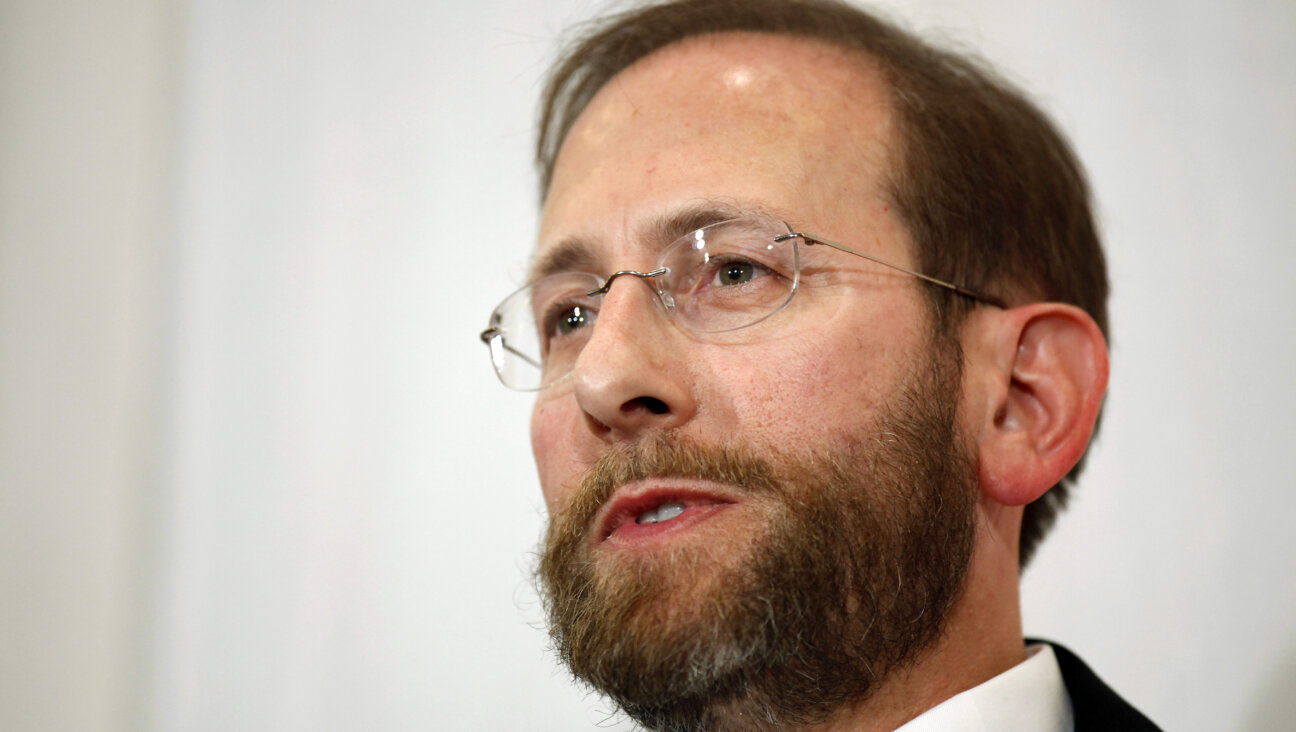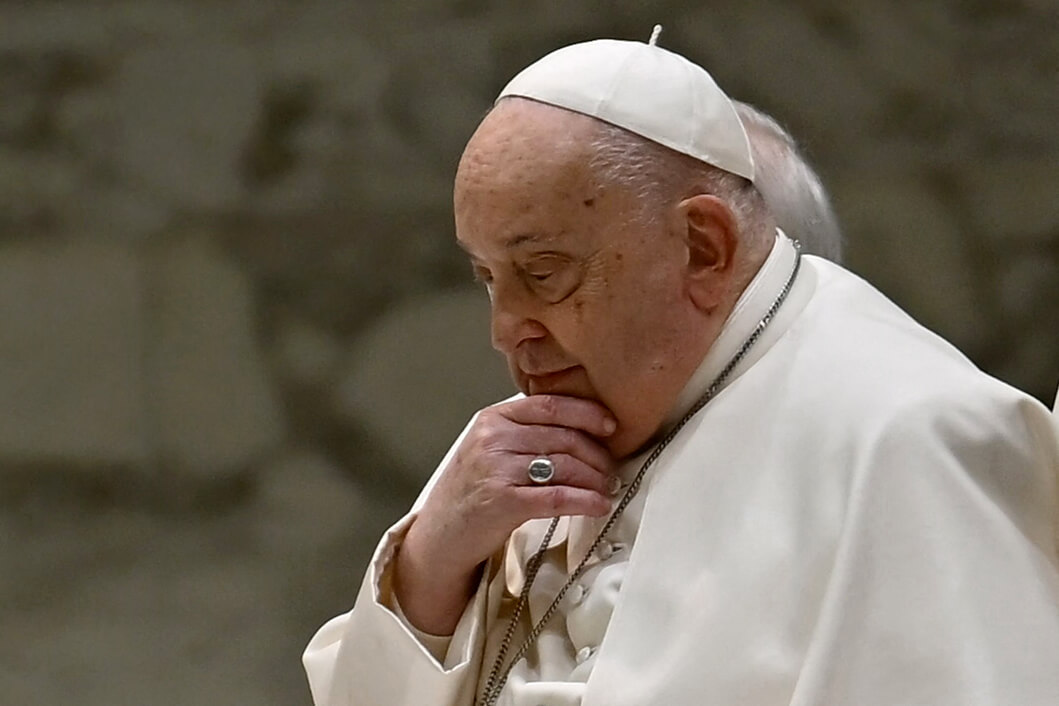Shrine of False Messiah in Turkey May Be Razed
Far away from the eyes of the Jewish mainstream, in modern-day Turkey there live hundreds, if not thousands, of crypto-Jews — and today, one of their most sacred shrines is in danger.
This is the hidden, fascinating tale of the doenmeh, descendants of the faithful followers of the 17th-century false messiah Sabbetai Tzvi, who converted to Islam in 1666. Tzvi’s own conversion came under duress: The Ottoman sultan demanded that he don the turban or die after nearly one-third of European Jewry had come to believe he was the messiah and had begun swarming into Turkey, expecting the long-awaited triumph of the Jews.
Tzvi chose to convert, and most of his followers lost hope — but not all of them. Many saw the conversion as a heroic act of tikkun, or repair, and followed their messiah’s lead by outwardly becoming Muslims while secretly maintaining their messianic Jewish faith. They were called doenmeh, meaning “turncoats”— a pejorative term not unlike marrano (“pig.”) Among themselves, they were called ma’aminim, “believers.” Sabbateanism did not die out in 1666, or even 10 years later when Tzvi himself died. There were subsequent messiahs — largely forgotten men like Baruchiah Russo and Jacob Frank — and, as recent scholarship has shown, Sabbateanism greatly influenced the 18th-century emergence of Hasidism. And then there are the doenmeh, who live on until the present day, in secretive communities, at first primarily in Salonika and today almost entirely in present-day Turkey.
A move to tear down the Turkish home where Tzvi is said to have lived, however, may now disturb the balance the community has cultivated for centuries.
Over the years, most of the doenmeh assimilated into Islam; many more were annihilated during the Holocaust, and still more have, in modern-day Turkey, come to see their background as a curious but largely irrelevant heritage. But even those who did assimilate usually maintained some knowledge of their ancestry, and doenmeh were among the founders of the secular Turkish republic. Today, many doenmeh are among Turkey’s elite, though it is taboo to speak their names; since doenmeh are regarded as traitors by both Muslims and Jews, it is scandalous to accuse a person of being one of them, even if his or her identity is an open, unspoken secret. (Recently-deceased Turkish foreign minister Ismail Cem, for example, was “outed” by several Turkish newspapers, but he denied being a Sabbatean, and Iglaz Zorlu’s best-selling 1999 memoir, “Yes, I am a Salonikan,” stirred controversy throughout the country.) But the secret is open, like the doenmeh cemeteries outside of Istanbul, with their distinctively unadorned gravestones, and the mosques where doenmeh are known to pray.
Barry Kapandji is one of the few doenmeh descendants willing to openly acknowledge his ancestry — and even he wouldn’t use his real name (“totally out of the question,” he said). Kapandji, 33, was told by his father that he was a doenmeh when he was nine years old. Since then, he has been fascinated by his heritage. Kapandji first contacted me a few months ago, when he learned that the house in Izmir (formerly Smyrna) in which Tzvi is believed to have lived was slated for demolition by the municipality to make way for a park. No one would help him: The doenmeh he knew were afraid of going public, and the Jewish community wanted nothing to do with this sect of heretics.
“This is a crime against culture, history and my heritage,” Kapandji told me. “The Jewish community elders do not want the house turned into a museum.… They would like Sabbetai’s name to be eradicated from history.”
The Forward was not able to obtain a comment from the Izmir Jewish community, but it is true that in traditional Jewish circles it is customary to add the epithet “Yemach shemo,” “May his name be blotted out,” to the names of Sabbetai Tzvi and other heretics. Usually, the epithet works: Few know their names today. Yet, Kapandji said, “Sabbetai Tzvi, for better or for worse, helped shape the history of the Jewish people, and we should acknowledge him for that.”
But is the house at 920 Agora Girisi, half-ruined and barely distinguishable from others in the old Jewish neighborhood (now mostly destroyed), really the birthplace of Sabbatai Tzvi, the “mystical messiah”?
Yes, according to Dr. Cengiz Sisman, an expert on Sabbateanism who received his doctorate from Harvard University. Sizman cited a wealth of evidence, including 1925 and 1940 newspaper reports of the house (the architecture of which is clearly described) being used as a “visiting site by believers,” a 1935 book by noted historian Abraham Galante, and a 1961 account by writer John Freely of a group of believers lighting candles and performing a ritual on the third floor of the building.
By the 1990s, however, few doenmeh were maintaining the old rituals, and the house, like the rest of the area, had fallen into disrepair. It appeared briefly in a French-language documentary on the doenmeh by filmmaker Michel Grosman, but only a few interested parties, like Sisman and Kapandji, were even aware that it had been slated for demolition. Last month, Kapandji interceded with the Izmir municipality and, on the basis of testimony by elders from the Sabbatean and Jewish communities, temporarily halted the destruction of the house — or at least what remains of it.
Today, Sisman said, “neither the Jewish nor the Sabbatean groups are particularly keen to utilize the house for any kind of Sabbatean or Jewish purpose.” For the Jews, it is the home of a heretic best forgotten; and the few doenmeh still aware of their ancestry fear being branded as traitors if they are exposed.
Surely, though, if this house is what Sisman and Kapandji believe it to be, it is an important relic of a key episode in Jewish history. Of course, as shown by Israel’s many Crusader tombs doubling as the supposed burial places of prophets and rabbis, the fact that a place is venerated by believers does not mean that it is what they believe it to be. Then again, there are reasons to think that this instance might be different. The doenmeh, after all, have lived in the same place, continuously, since the time of Tzvi himself, and have maintained a secret tradition of belief, liturgy, ritual, even recipes. Kabbalah scholar Avraham Elqayam recently published an article describing the mystical significance of a newly unearthed doenmeh cookbook, and Zeek, an online journal of which I am an editor, is publishing translations of Sabbatean hymns and first-person accounts of Tzvi at prayer, compiled by David Halperin, professor emeritus of religion at the University of North Carolina.
So perhaps it’s not as much of a stretch to suppose that a secret community, living continuously in one place, might preserve historical memory more accurately than, say, Jews returning to the Land of Israel after centuries away — or, for that matter, the mother of the Emperor Constantine, who is supposed to have identified most of the Christian holy sites in Israel while on a pilgrimage of her own. “I come from a family of academics,” Kapandji said. “We aren’t accustomed to claiming things without any evidence.”
Kapandji wants to see the house as some kind of museum, though he acknowledged that openly discussing Tzvi himself is still taboo in Turkish society. Sisman thinks the house should be preserved for Turkish reasons, as a testament to that country’s “multicultural heritage.”
Perhaps the house is of significance to Jews, as well. Sabbateanism was a dynamic, mystical and progressive movement — it was the first to put women in positions of leadership and to question the authority of normative Judaism — that was, according to many, an antecedent of Zionism. (Israeli presidents Yitzhak Ben-Zvi and Zalman Shazar were both scholars of the movement, and Theodor Herzl’s opponents labeled him a “new Sabbetai Tzvi.”) In an age in which many people are seeking alternative forms of Jewish expression, perhaps it is worth remembering those that did not survive.
Or rather, those that still, secretly, endure.
The Forward is free to read, but it isn’t free to produce

I hope you appreciated this article. Before you go, I’d like to ask you to please support the Forward.
Now more than ever, American Jews need independent news they can trust, with reporting driven by truth, not ideology. We serve you, not any ideological agenda.
At a time when other newsrooms are closing or cutting back, the Forward has removed its paywall and invested additional resources to report on the ground from Israel and around the U.S. on the impact of the war, rising antisemitism and polarized discourse.
This is a great time to support independent Jewish journalism you rely on. Make a gift today!
— Rachel Fishman Feddersen, Publisher and CEO
Support our mission to tell the Jewish story fully and fairly.
Most Popular
- 1

Opinion The dangerous Nazi legend behind Trump’s ruthless grab for power
- 2

Opinion A Holocaust perpetrator was just celebrated on US soil. I think I know why no one objected.
- 3

Culture Did this Jewish literary titan have the right idea about Harry Potter and J.K. Rowling after all?
- 4

Culture Trump wants to honor Hannah Arendt in a ‘Garden of American Heroes.’ Is this a joke?
In Case You Missed It
-

Culture I have seen the future of America — in a pastrami sandwich in Queens
-

Culture Trump wants to honor Hannah Arendt in a ‘Garden of American Heroes.’ Is this a joke?
-

Opinion Gaza and Trump have left the Jewish community at war with itself — and me with a bad case of alienation
-

Fast Forward Trump administration restores student visas, but impact on pro-Palestinian protesters is unclear
-
Shop the Forward Store
100% of profits support our journalism
Republish This Story
Please read before republishing
We’re happy to make this story available to republish for free, unless it originated with JTA, Haaretz or another publication (as indicated on the article) and as long as you follow our guidelines.
You must comply with the following:
- Credit the Forward
- Retain our pixel
- Preserve our canonical link in Google search
- Add a noindex tag in Google search
See our full guidelines for more information, and this guide for detail about canonical URLs.
To republish, copy the HTML by clicking on the yellow button to the right; it includes our tracking pixel, all paragraph styles and hyperlinks, the author byline and credit to the Forward. It does not include images; to avoid copyright violations, you must add them manually, following our guidelines. Please email us at [email protected], subject line “republish,” with any questions or to let us know what stories you’re picking up.
















